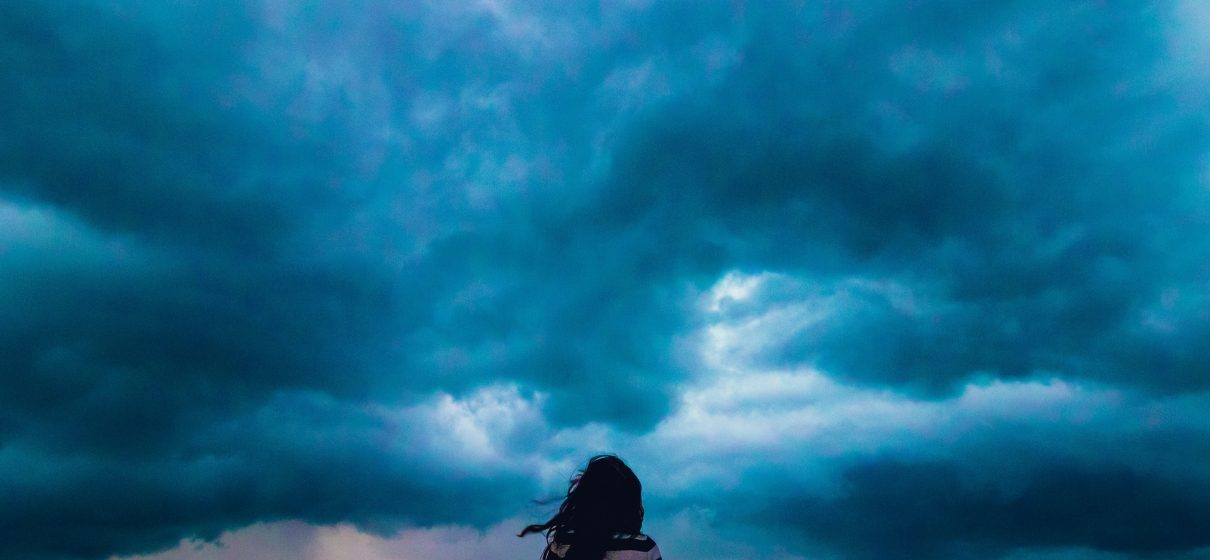Whose Fault is the Hurricane?
When natural disasters occur and lives are lost or destroyed, everyone begins searching for answers. The pain is so great and the suffering is so consuming that we feel a need to make sense of the chaos. Some people do that by searching their Bible for connections between the current disasters and the end-times, while others look for someone to blame.
Is a city or nation’s sin at fault for this tragedy?
Is it a result of God’s judgment?
Why did this happen to them—or to us?
A similar question was posed to Jesus during his ministry. In the midst of a conversation about the final judgment, someone asked how this connected with some recent tragedies. Were these two unexpected events—eighteen people dying in the collapse of a tower and the killing of innocent bystanders by soldiers in the Temple—a punishment on those who suffered? Jesus responded:
Do you think that these Galileans were worse sinners than all the other Galileans, because they suffered in this way? No, I tell you; but unless you repent, you will all likewise perish.
– Luke 13:1-5
Jesus knows what they are really asking: Did these people deserve what came? Are they particularly bad? His words remind us that suffering is a result of sin, but it is not our neighbors’ sin that should worry us, but rather our own. What can Jesus’ answer teach us about how we should respond to hurricanes, pandemics, or any other suffering in this world?
REPENT
In the beginning, God’s creation was completely good, but Adam and Eve’s rebellion changed everything. And their sin is our sin too—it is the sin of all mankind. This is the broken world that we have created, in which we constantly feel the consequences of our corporate and individual sin.
In our fallen world, the redeemed suffer alongside the enemies of God, as both his common grace—sunshine, rain, science, art—and the brokenness of the world are experienced by us all. The world is full of goodness, but we still must reckon with the impact of our sin on the world. And beyond our day-to-day difficulties, a judgment is coming that will bring greater destruction than anything we have experienced. The full wrath of God will be revealed.
Disaster of all kinds should lead us to repentance, not because we live in a city that is particularly bad, but because we are all sinners. Humanity has rejected God and determined to live our lives outside of his authority and presence, to disastrous results.
We all must repent. This is not merely a call to the lost. Repentance should be a defining mark of the Christian life. To follow Jesus is to acknowledge to God, ourselves, and the world around us that we fall short constantly, even as we continually turn toward Jesus in trust and obedience.
REMEMBER
We still live in a fallen world, but there is hope amid the brokenness, even as storms rage in our minds, our families, and creation itself. We will see suffering in this age, but Jesus descended into our suffering world to rescue us from the destruction of our sin. Christians should understand more than any others the deep pain of a paradise lost, but we also know the hope of Jesus.
Jesus confirms the reality of judgment for our sins, but he also offers a solution—himself. The one through whom and for whom the world was made, the sovereign King of all, has descended from his throne to redeem us and all of creation. Not only has he saved us from judgment, but he is making all things new and will return to rule his people in the restored creation, made perfect once again.
He will wipe away every tear from their eyes, and death shall be no more, neither shall there be mourning, nor crying, nor pain anymore, for the former things have passed away.
– Revelation 21:4
RESPOND
Suffering provokes believers and unbelievers alike to seek answers. When disasters strike—natural or personal—we should grieve with those who grieve, acknowledging the terrible reality sin has wrecked upon the world. Let us then offer an answer of hope and trust in Christ, both proclaiming and embodying the gospel of redemption. We ourselves are new creations, indwelt by the Holy Spirit, and our response is the best testimony of the promises of restoration found in Jesus.
How we offer this tangible, sacrificial hope to others is unique to each of us: a meal for someone in pain, giving up weekend rest to clear debris, offering shelter to a family without a home. There are a myriad of ways to love and serve others, but we all have the responsibility and opportunity to participate in the missional work of Christ to draw others to himself and set the world right.
Disasters remind us that although judgment is coming, there is a solution: faith in Jesus. We might not always understand why suffering occurs, but we do know who gives us redemption and hope, walking beside us in the face of it all.
May suffering and pain always lead us to repent of our own sin, remember the work of Jesus to redeem and restore his creation, and respond with missional love to a lost and broken world.
When you look around and wonder whether God cares,
you must always hurry to the cross
and you must see him there.
– Martin Luther
- How to Find Real Rest During Spring Break - March 9, 2023
- A Tale of Two Christmases - December 22, 2022
- Is December 25 Really When Jesus Was Born? - December 23, 2021

